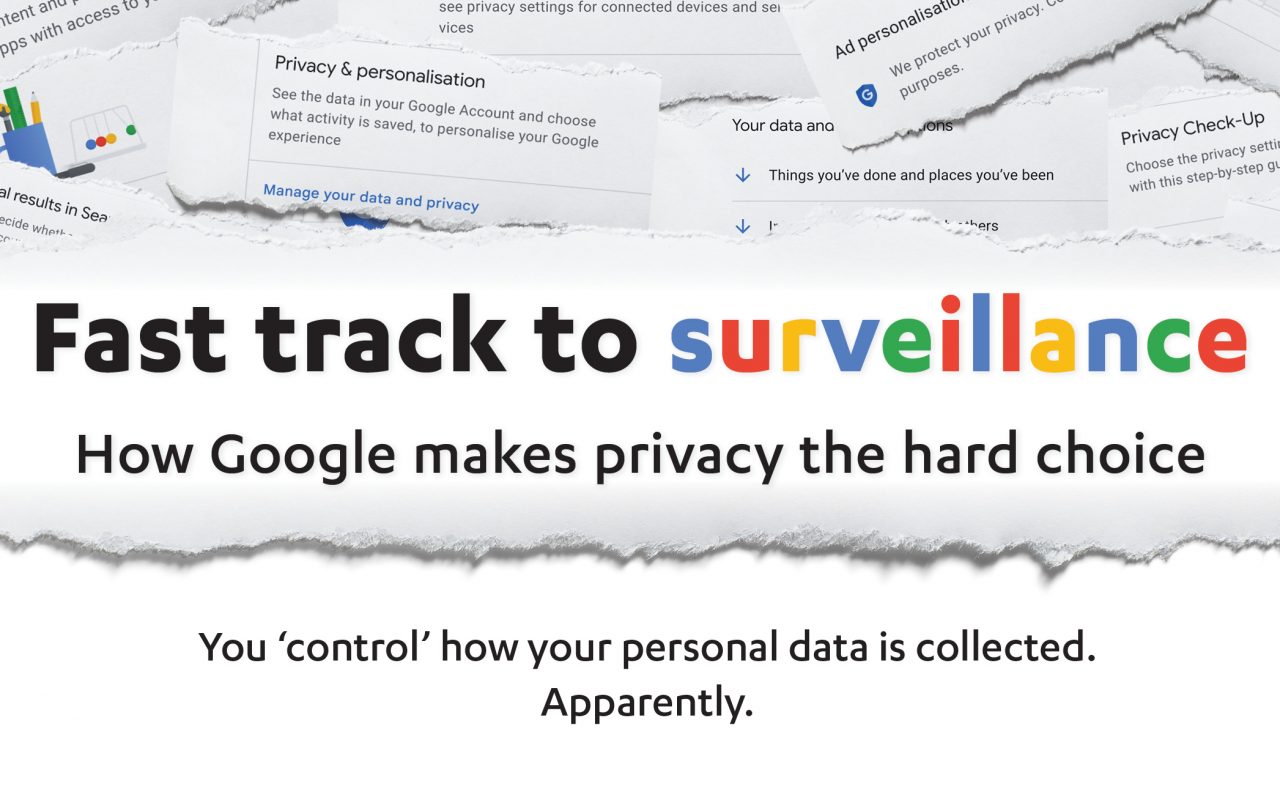Research led by BEUC, The European Consumer Organisation – a TACD member – found that tech giant Google unfairly steers consumers towards its surveillance system when they sign up to a Google account, instead of giving them privacy by design and by default as required by the General Data Protection Regulation (GDPR).
As a result, 10 European consumer groups, under BEUC’s coordination, have taken action to ensure that Google complies with the law, including by filing complaints with national data protection authorities. In the U.S., 10 consumers and digital groups from the TACD network wrote to the Federal Trade Commission to urge the agency to take these concerns into consideration and open an investigation into Google’s practices to ensure that U.S. consumer privacy rights are protected.
“Contrary to what Google claims about protecting consumers’ privacy, tens of millions of Europeans have been placed on a fast track to surveillance when they signed up to a Google account. It takes one simple step to let Google monitor and exploit everything you do. If you want to benefit from privacy-friendly settings, you must navigate through a longer process and a mix of unclear and misleading options. In short, when you create a Google account, you are subjected to surveillance by design and by default. Instead, privacy protection should be the default and easiest choice for consumers.” – Ursula Pachl, Deputy Director General, BEUC
When testing the sign-up process in the U.S., our members found that while slightly different in structure, the key concerns shared on the other side of the Atlantic remain and, in some cases, are even more hidden from consumers. In the U.S. sign-up process, several design choices are made to highlight options that would enable the most possible information collection and use.
 The Google account is the red thread which connects how users’ data is used across all Google services. Consumers can choose to create a Google account voluntarily or be obliged to create one when they use certain Google products and services. For example, they must create an account when they buy a smartphone that uses Google’s Android system, which almost 7 in 10 phones worldwide (69%)1 depend on, if they want to download apps from the Google Play store.
The Google account is the red thread which connects how users’ data is used across all Google services. Consumers can choose to create a Google account voluntarily or be obliged to create one when they use certain Google products and services. For example, they must create an account when they buy a smartphone that uses Google’s Android system, which almost 7 in 10 phones worldwide (69%)1 depend on, if they want to download apps from the Google Play store.
The practices likely violate the FTC Act, a law that empowers the agency to prevent deceptive practices that harm consumers, said Calli Schroeder, digital co-chair for the U.S. at the Transatlantic Consumer Dialogue.
Google’s data collection and data processing practices have frequently come under scrutiny, both in previous actions under the GDPR and previous FTC enforcement actions. Lawmakers have recently pushed the FTC to investigate Google over mobile tracking, ad practices, and more. An investigation into Google’s account sign-up practices would be perfectly in line with the consumer protection stance taken in previous actions.
More:
- BEUC’s action: “Fast track to Surveillance: How google makes privacy the hard choice”
- BEUC’s Press Release: “European consumer groups take action against Google for pushing users towards its surveillance system”
- TACD’s U.S. members letter to the FTC “Investigation of Google’s Account Sign-Up Process”
- BEUC’s FAQ
